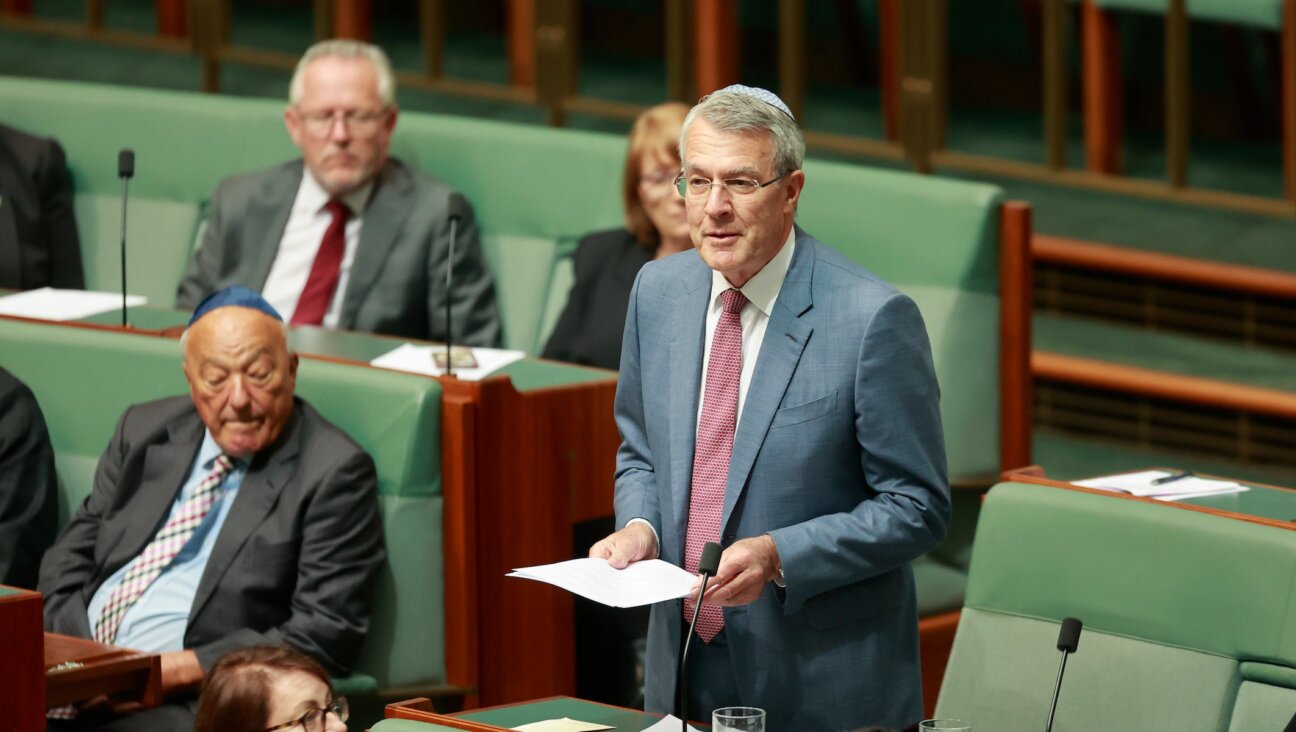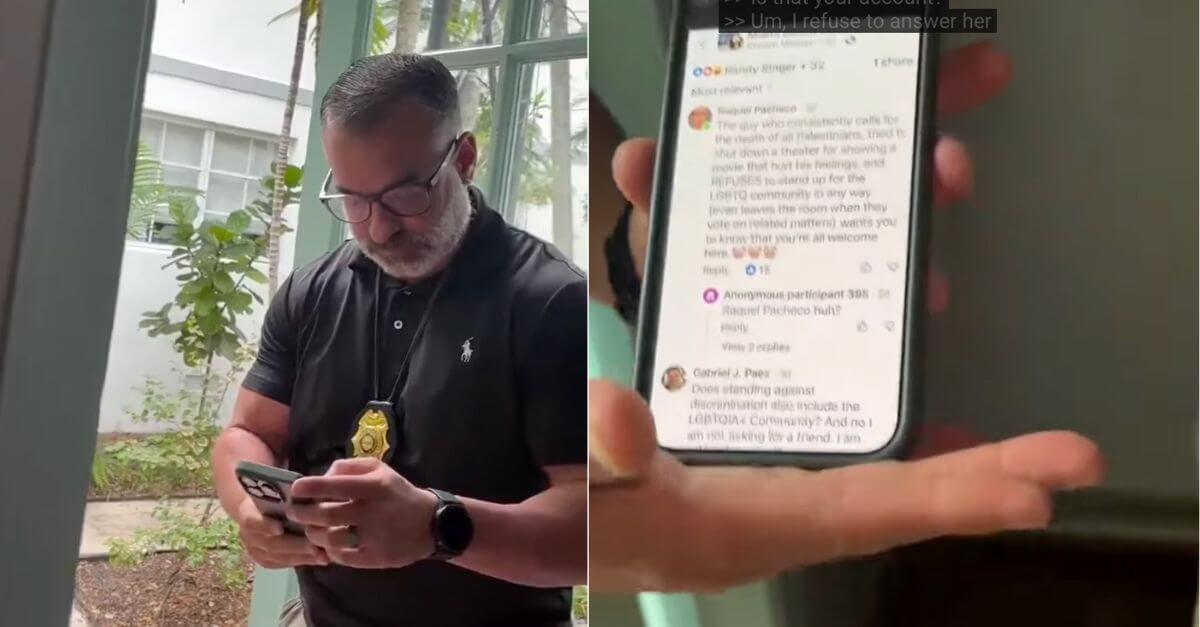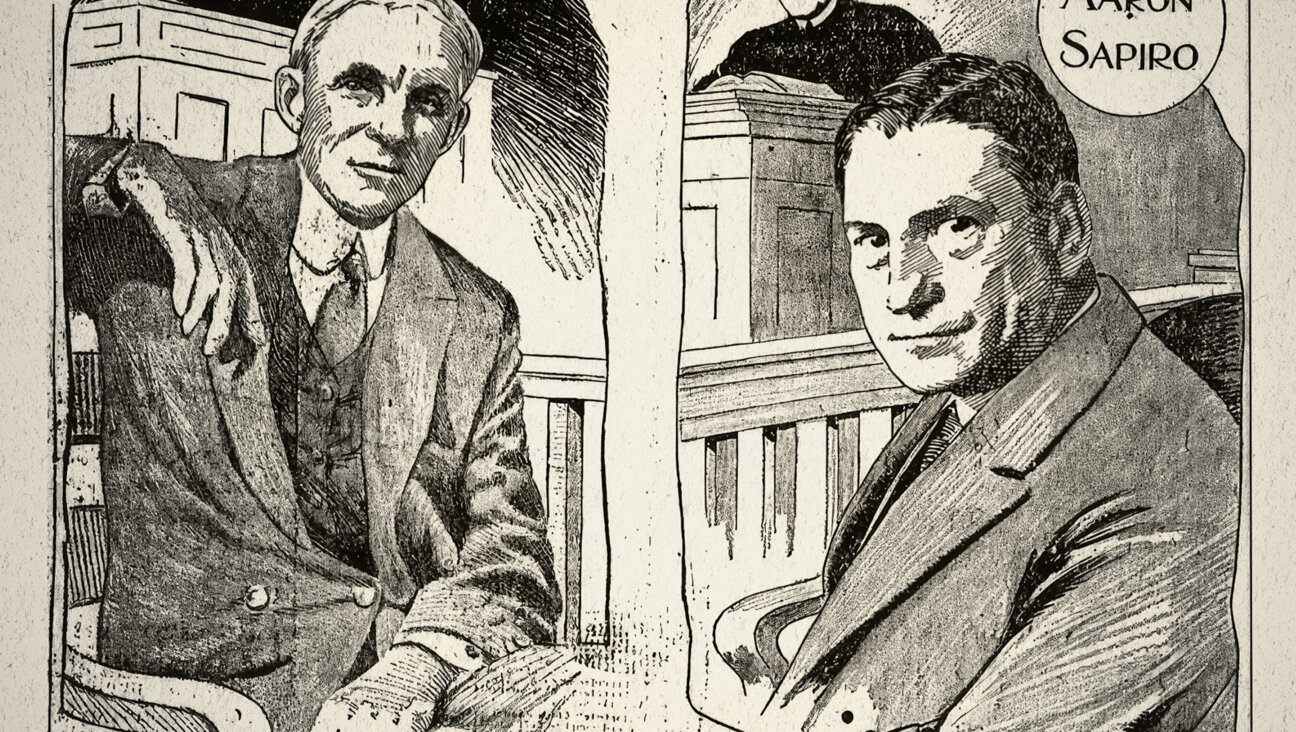Begging Pardon
Amid the grand pronouncements that newspapers regularly put forth on the issues of the day, it’s easy to lose sight of the things we leave unsaid, the people we overlook and the stories we leave untold — stories whose telling ultimately might have made the difference between the truth and the whole truth.
The Forward works hard, week after week, to give a fair and rounded picture of the lives Jews live today and the questions they struggle with. Constraints of space and resources inevitably limit the fullness of the picture we portray, but we like to think we do an honest job over the long haul.
Still, there are always things we could have said that would have made the story just a little bit more fair. Approaching the Day of Atonement and looking back at the tumultuous year now ended, here are a few things we wish we could have done better:
The Gaza settlers. We supported Israel’s decision to disengage. It’s something we began advocating long ago. Over the past year we tried hard to report the unfolding story in a way that other newspapers couldn’t and wouldn’t. Along the way, though, we may have given too little attention to the genuine human pain of the uprooted settlers. At a time when the Jewish community worldwide is dangerously divided over the differing narratives of what transpired in Gaza this summer, we in the press have a duty to create bridges of communication.
The Palestinians. We’ve been strong advocates of a tough posture toward terrorism, and we don’t apologize for that. That’s led us to sympathize with some controversial Israeli actions, including military strikes and the construction of the West Bank security fence. But all that has come at a cost to Palestinians trapped in the conflict and innocent of any crime. In our zeal to tell Israel’s story, we may have shortchanged its neighbors.
As with the settlers in Gaza, so with the Palestinians in the territories. Sometimes pain must be inflicted for the sake of a greater good. But that doesn’t mean we’re free to overlook the pain. We owe it to our readers and to ordinary people on both sides to tell the stories of the afflicted.
President Bush. We’ve had our disagreements with this president, and we’ve made no secret of it. Some of our readers have been offended, either by our news reporting or by the opinions expressed on this page. We regret the offense.
We walk a fine line between advocating our views on public policy, on one hand, and respecting the office of the presidency and the feelings of those who disagree with us, on the other. If we sometimes lose that balance, we apologize.
America’s poor. The Forward has a long tradition of solidarity with ordinary working men and women, going back to the days of the immigrant ghettoes. Today, after generations of success and prosperity, many Jews have a hard time remembering what those old values of social justice and economic fairness have to do with them — as Jews or otherwise. It’s our job to tell the stories and lay out the facts that make the connection plain. We’re going to try harder to do that in the days ahead.
On Yom Kippur we make atonement for sins both of commission and of omission, both intentional and unintentional, even those we didn’t know about. To all our readers, a sweet and peaceful new year.
















